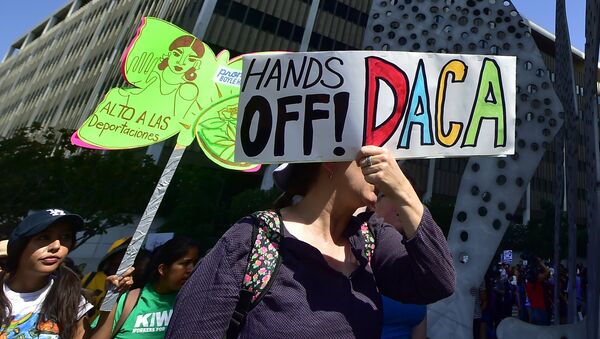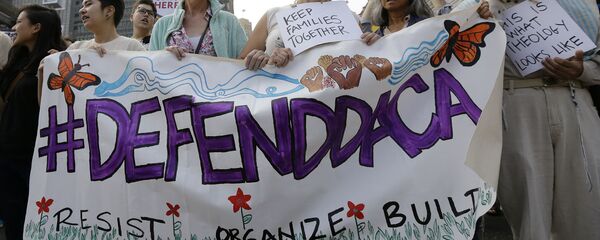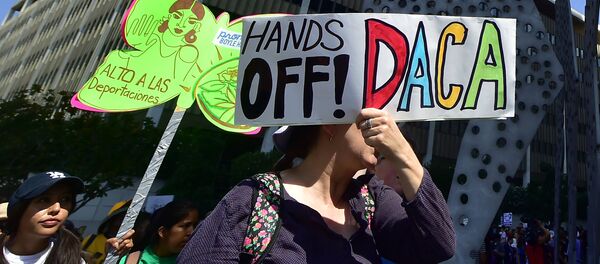The abolition of the Deferred Action for Childhood Arrivals (DACA) policy won't have any effect on the US economy, Jessica Vaughan, director of Policy Studies with the Center for Immigration Studies told Radio Sputnik, suggesting that main addressee of the recent wave of protests against the termination of the program is the US Congress.
"There are 700,000 of people who have this [DACA] status, many of them have been working for five years now but I don't think there would be any massive economic effect in either direction if this program was ended… even in California, where most of them live," Vaughan said.
The American scholar explained that the DACA program was created by Barack Obama. It gave a work permit to people who entered the country illegally under the age of 16 and who had been in the country continuously for five years or more. This work permit enabled them to obtain a drivers' license, to work and to live in the United States as if they had a legal presence.
She noted that from the very beginning the program has prompted controversy: "There were two lawsuits over the program and it was found to be improper."
Seeking to end the program the Trump administration has given Congress six months to "figure out a real solution for these individuals," she said. If Congress doesn't find the way out, Trump promised that he will look into the case again.
Congress now has 6 months to legalize DACA (something the Obama Administration was unable to do). If they can't, I will revisit this issue!
— Donald J. Trump (@realDonaldTrump) 6 сентября 2017 г.
Vaughan emphasized that Trump's decision to enable Congress to deal with the DACA issue was the step in the right direction since "that's the branch of [the US] government that has the authority" to solve the problem in a lawful way.
The same day hundreds of people took to the streets in New York City to voice their opposition to the White House's decision to terminate the program. The move was also criticized by the US Democrats and even some members of the Republican Party.
However, Vaughan believes that "the protests and angry press releases" as well as lawsuits are actually aimed at sending the message to Congress, "that there is widespread support for keeping the [DACA] program."
The American scholar pointed out that in any event it would be hard to find a solution which would please everybody.
"There are many people who believe that there should be no amnesty whatsoever even for this sympathetic group of people," she told Radio Sputnik, "There are others who think that this amnesty should not be limited to this group that it should be for everyone in the country illegally."
In August, nearly 1,500 US economists sent a letter to Trump stating that the US economy benefits from immigrants. The economists argued that without a healthy inflow of immigrants, the US labor force would soon be in decline with manufacturing, agriculture, construction and the high-tech sectors suffering the most.
Barack Obama implemented the DACA program by an executive order in 2012, allowing illegal migrants who entered the country as minors to receive renewable two-year deferrals on deportation proceedings, as well as permits to work in the country.




